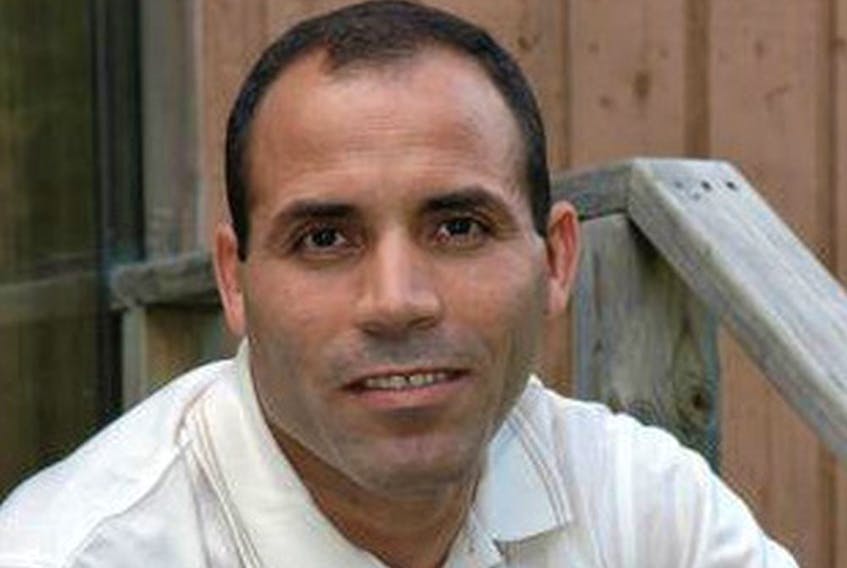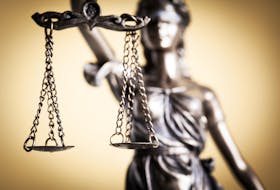Ottawa terror suspect Mohamed Harkat faces new controls on his use of technology after a judge found he violated a bail condition by changing the capitalization on one letter of his email password.
“While Mr. Harkat may not have intended to change his password, the fact remains that he did so without informing the CBSA (Canada Border Services Agency),” concluded Federal Court Judge Sylvie Roussel in a recent decision.
Harkat, 51, has been deemed a member of the al-Qaeda network in an unusual and secretive legal procedure conducted under authority of the federal security certificate law. He has been on bail since 2006, but now faces deportation to his native Algeria.
Harkat holds refugee status in Canada and has launched a legal battle to halt his deportation to the North African country that he fled as a university student. He says he will be tortured or killed if returned.
Roussel was asked to rule on a dispute about bail conditions in the Harkat case. Lawyers for the CBSA — the agency responsible for supervising Harkat’s bail — alleged that had he breached his conditions by changing his email password, using a private browsing function and deleting emails without consent.
The agency wanted tighter controls on Harkat, while lawyers for the Ottawa man asked the court for relaxed conditions to make it easier for him to hold a job.
Much of the government’s case fell apart during five days of court hearings.
Related
Harkat presented court with a CBSA document from December 2013, authorizing him to delete emails after his computer had been inspected by the agency. In accordance with those instructions, he deleted some emails after delivering his computer for inspection in May 2018.
The following month, the CBSA informed Harkat that it had discovered deleted emails after a routine review of his online account.
Roussel found that Harkat had not breached his bail since the CBSA did not establish when the emails were deleted. “There is no objective documentary evidence demonstrating the breach,” she said.
Similarly, in March 2019, the CBSA alleged that Harkat had used a private browsing function in violation of his bail. A CBSA forensic expert alleged, based on his analysis of Harkat’s computer hard drive, that he had used Internet Explorer’s “InPrivate” browsing function.
Harkat hired his own forensic expert, however, who found no evidence that the laptop had been used to browse privately. Instead, he said, Internet Explorer’s automatic crash recovery process had confused the CBSA expert.
The CBSA withdrew its allegation of a bail breach only after Harkat’s expert filed several videos simulating the crash recovery process.
Roussel did find Harkat in violation of bail for changing his password, even though he insisted in court that it was an accident.
In September 2018, Harkat had his computer inspected by the CBSA, then took it to be repaired. When he returned home with the computer, he couldn’t log back into his email account. After three attempts, he was prompted to reset his password. Not wanting to violate his bail conditions, Harkat said, he used the same password.
But CBSA officials were locked out of his account, and it took them two months to sort out what was wrong: One letter of Harkat’s password had been changed from uppercase to lowercase.
Roussel found the password change constituted a breach of Harkat’s strict bail conditions since he could have done more to uncover the problem. “The existence of the breach,” she said, “raises issues of trustworthiness and credibility, both of which are essential considerations in reviewing the appropriateness of the terms and conditions of release.”
The judge ordered Harkat to give the CBSA the make and model of any cellphone he uses at work, and to ask his employer to report any unauthorized use of the phone to the agency. She also ordered him to provide the CBSA with the password to any social media accounts he creates.
Meanwhile, Harkat won the right to a personal mobile phone provided that it can be regularly inspected by the CBSA, and an easing of reporting conditions to make it easer for him to travel in Quebec and Ontario.
“Although the danger associated with Mr. Harkat has diminished over time and is situated at the lower end of the spectrum,” Roussel said, “conditions continue to be necessary to neutralize this danger.”
Copyright Postmedia Network Inc., 2020









